#rebellion of 1798
Explore tagged Tumblr posts
Text
The Year of the French (1982)
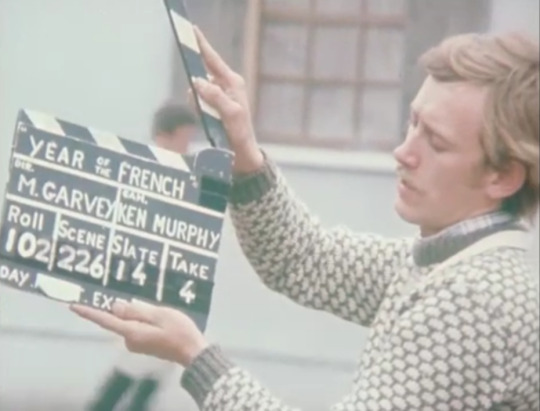
Still from: Redcoats Return to Killala, 1981, RTÉ Archives.
I don't have much hope, but maybe someone can help me with my personal white whale, which is the TV series The Year of the French (1982), an Irish/French/British co-production based on the novel of the same name by Thomas Flanagan.
While the novel and the soundtrack, recorded by The Chieftains, are easy enough to access, the series itself remains elusive, to the point that it never saw a DVD, let alone a digital release.
From old forum discussions on IMDb, I gleaned that the series was repeated a couple of times and that some people possess home-recorded VHS-copies, which gives me some hope that a) it actually exists, and b) someone may have digitised the series after all.
Does anyone here know more about The Year of the French, or how to find/access it?
#the year of the french#history#irish history#question#18th century#rebellion of 1798#1798 rebellion#the chieftains#irish music#tv#tv shows
17 notes
·
View notes
Note
Hi! So this is gonna sound weird, but I’ve kinda been learning about Irish history backwards? Like, I started with the Troubles (bc of family involvement), then back to the 1916 rising which got me more interested in the people involved which took me further back and etc etc. I know I’ve been doing it “wrong” but I’m just starting to come up to the 1798. Do you happen to have any recommended readings or particular persons of interest to read? Any collections of primary sources would be more than welcome!
Secondary sources I would recommend:
The Year of Liberty by Thomas Pakenham - about the rebellion in general
The People's Rising by Daniel Gahan - about the rebellion in Wexford
The Summer Soldiers by ATQ Stewart - about the rebellion in Ulster
Wolfe Tone: Prophet of Irish Independence by Marianne Elliott - about Wolfe Tone
The Life and Times of Mary Ann McCracken by Mary McNeill - technically this is just about Mary Ann but I think it's pretty good for Henry Joy McCracken too because there aren't many biographies of him
Orangeism in Ireland and Britain 1795 - 1836 by Hereward Senior - obviously exercise caution on whether or not you think you can mentally handle this subject but book about loyalism during 1798
Castlereagh: War, Enlightenment, and Tyranny by John Bew - about Lord Castlereagh
2 things that I would also recommend reading about for context are the French Revolution and the British radical movement of the late 18th century. for the French Revolution 1 book I would say is good is Liberty or Death by Peter McPhee and for the British radical movement... the book The English Jacobins by Carl B Cone does a good enough job
Primary sources:
The Memoirs of Theobald Wolfe Tone by Theobald Wolfe Tone - title is pretty self explanatory. It's Tone's account of his own life + his diary
The United Irishmen, Their Lives and Times by RR Madden - this is considered to be the 1st history of the rising & was written with the help of many people who lived through it, so it includes a lot of first hand accounts. HOWEVER. beware that Madden was your archetypical mid 19th century Catholic Irish nationalist and the bias created due to that shows through in every single part of these books
Memoirs of the different Rebellions in Ireland by Sir Richard Musgrave - this is another very early history of the rising, also written with the help of people who lived through, also including a lot of first hand accounts. HOWEVER. Musgrave is like Madden's Orange counterpart in that this book is also wildly biased and should also be read with a degree of caution
Personal Narrative of the "Irish Rebellion" of 1798, Sequel to Personal Narrative of the "Irish Rebellion" of 1798, and History and Consequences of the Battle of the Diamond by Charles Hamilton Teeling - 3 accounts of politics in Ireland in the 1790s written by someone who as a young man led the Catholic paramilitary the Defenders
The Drennan letters (a collection of letters that Belfast doctor William Drennan and his sister, Martha McTier, wrote to each other between the 1770s and 1820s), if you can find them, are another great primary source on both the United Irishmen & on what life was like back then in general, as are the McCracken letters, which I know are available free online somewhere I just can't remember where exactly I got the pdf from
There are a lot of them but if you're interested in primary sources you might also read some of the political pamphlets/books that were going around back then -- the most famous that come to mind in this context are Wolfe Tone's Argument on Behalf of the Catholics in Ireland, Thomas Paine's The Rights of Man, and Edmund Burke's Reflections on the Revolution in France but there are wayyy more than that and at least some of them are on the internet archive
200 notes
·
View notes
Text
History of Harold's Cross, Dublin
One explanation of the origin of the name Harold’s Cross is that it is derived from the name given to a gallows, which had been placed where the current Harold’s Cross Park is situated. Harold’s Cross was an execution ground for the city of Dublin during the 18th century and earlier. In the 14th century the gallows there was maintained by the Archbishop. Harold’s Cross stands on lands which…
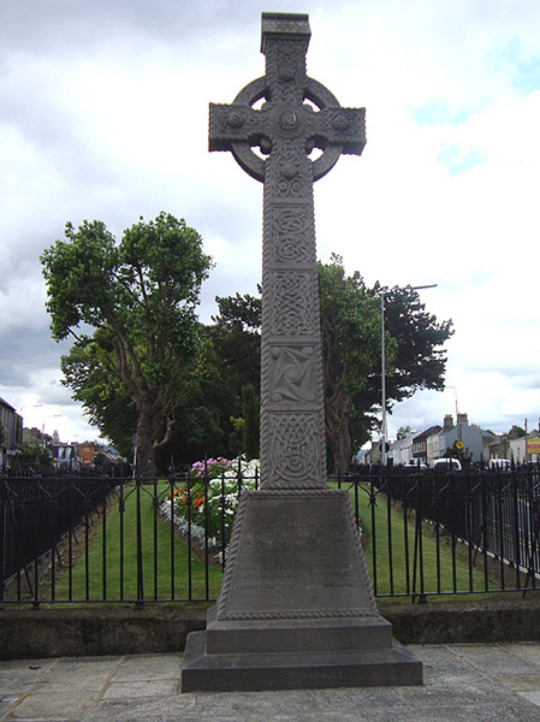
View On WordPress
#1798 United Irishmen Rebellion#1916 Volunteers#Archbishop#Dublin#Gallows#Harold&039;s Cross Green#History#History of Ireland#Ireland#Irish History#Kimmage#Mount Argus Church#Padraig Pearse#Rathfarnham#Rathmines#Robert Emmet#Sarah Curran#The Pale#Whitechurch
13 notes
·
View notes
Text
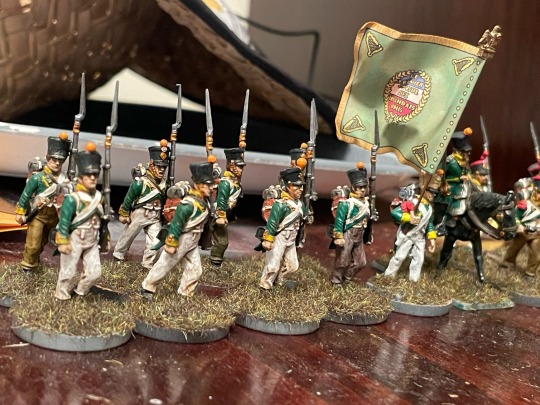
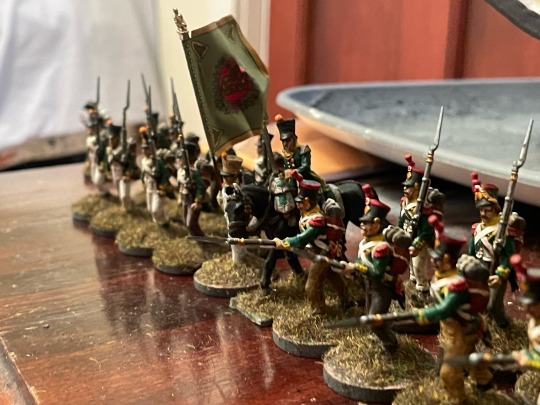
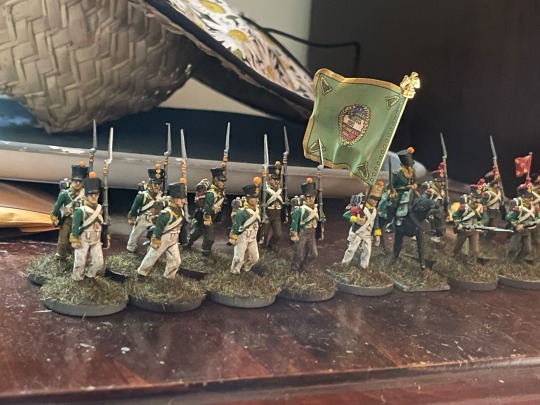
Men of the Irish Legion in Napoleon’s grande armee. These troops were largely of those who escaped after the failed 1798 rebellion in Ireland. The legion was meant to be the core of a force to invade England and Ireland under Napoleon in 1803, but the naval Battle of Trafalgar ended any seaborne plans of invasion.
The Irish Legion continued service in the Grande Armee, serving in the Netherlands, Peninsula War, and the 1813 German campaign.
#history#miniatures#military history#historic miniatures#napoleon#irish history#ireland#irish legion#1798 rebellion
6 notes
·
View notes
Text
If the free (insert country of choice) hashtag existed in when the ghosts where alive:
Humphrey: Free Netherlands
Kitty: Free New York, Free Massachusetts, Free New Hampshire, Free New Jersey, Free Pennsylvania, Free Delaware, Free Virginia, Free North and South Carolina, Free Georgia, Free Connecticut
Thomas: Free countries that is under Napoleon’s Rule, Free Ireland, Free countries that are Spanish colonies in North and South America, Free Brazil
Fanny: Free Ireland, Free India
The captain: Free countries that are under German and Japanese control, Free India
Pat: Free East Germany
Julian: Free Estonia, Latvia and Lithuania
#bbc ghosts#colonisation#american revolutionary war#Eighty Years' War#Irish Rebellion of 1798#ussr#ireland#India#napoleonic wars#ww2#Baltic Way#east germany
3 notes
·
View notes
Text
Pluto in Aquarius

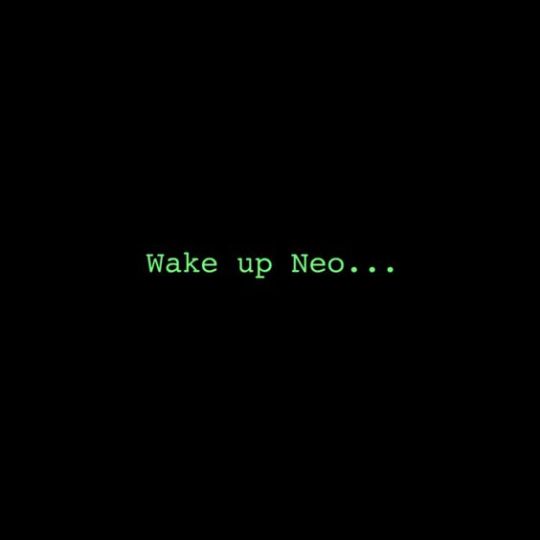

I'll give you a dose But it will never come close To the rage built up inside of me Fist in the air, in the land of hypocrisy
✶November 19, 2024 to January 19, 2044✶
Aquarius/Uranus rules: rebellion, innovation, thinking outside the box, youth, young adults, community, contribution to the community, groups, breaking conventions, dreams, ideas, surprises, accomplishments, social networks, social causes, social problems, dissatisfaction, uniqueness, agitation, fighting for ideals, fighting for ideas, new, future, future plans, technology, artificial intelligence, online groups, internet, unpredictability, rebellion, innovation, revolt, radicalism, chaos, revolution, turbulence, dissatisfaction, future, astrology, astronomy, gender equity, outer space, UFOs, programming, camaraderie, visionary, questioning, recycling, social responsibility.
Maybe we will feel like a new chapter is beginning because it is, however I would like to say that it is not yet the definitive end of an Era, that will only happen when Pluto enters Pisces and then begins its cycle again with Aries (2068–2098). Only then will we have the beginning of a new Era for humanity. That’s why it’s important for us to pay close attention to how we handle the pending social issues of this Era, such as: global warming, water resources, non-renewable energy sources (oil), gender inequality, humanitarian crises, hyperconnection, artificial intelligence, fake news, deep fakes.
I believe with all my being, with all my intuition, that if we do not take care of our planet now, when we are about to feel the force of Pluto in Aquarius acting on the collective (Earth), future generations—my children, your children, our grandchildren—will suffer greatly from the scenario that Pluto in Taurus (2097–2129) will bring. This generation will certainly pay for all the irreversible damage we have caused to the Earth. This is my intuition and my premonition, and I believe in it with my life. We must take care of this planet while there is still time.
Aquarius is also the opposite (opposition) of Leo, so leonine figures, as well as leonine themes, will go through certain challenges—this is a time of change.
When Pluto was last in Aquarius (1777–1798)
Lenormand was alive;
Yes, the creator of the Lenormand tarot was alive when Pluto was last in Aquarius, with the gift of vision running through her veins. Pluto in Aquarius guided this incredible seer through the paths of divination. Moreover, Marie Anne was part of the French Revolution and the Napoleonic Era.
French Revolution;
Declaration of the Rights of Woman and the Female Citizen by Olympe de Gouges;
Creation of the guillotine;
The “fall” of the monarchy;
The “fall” of absolutism;
Creation of the United States of America as an independent country;
The Enlightenment as the “predominant form” of thought.


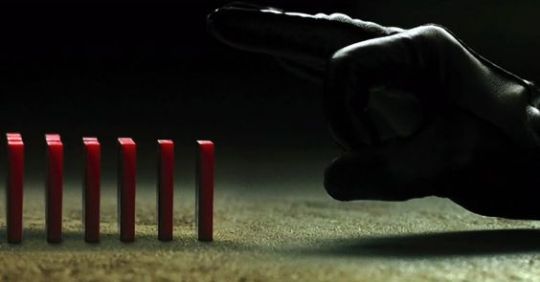
Predictions
Return of Cicada 3301
This is a more personal prediction. I feel that with Uranus entering Gemini and Pluto in Aquarius, we will see a boom in all matters related to the internet. Pluto rules sects and secret groups, which is exactly what Cicada 3301 is.
More violent protests
Protests will become more violent due to Pluto’s influence, which acts as an “amplifier” (similar to Jupiter), but Pluto intensifies extreme emotions. Therefore, if the collective is very dissatisfied, this dissatisfaction will be tripled, and as a result, the protests will become more intense.
Advancement or colonization of Mars
Elon (Mars in Aquarius in the 8th house) and his team will certainly make great progress when it comes to advancing the colonization of Mars, as outer space is ruled by Uranus, the ruler of Aquarius. Thus, I believe that we, as humanity, will move forward toward space-related achievements.
Changes regarding misogyny in India (Parts of Asia)
There is still a dramatic scenario in 2024 occurring in parts of India and East Asia, where baby girls are abandoned or killed simply for being girls. Korean women still face a great deal of gender disparity in the workplace.
Behavioral shift in South Korea
South Korea still has a social landscape that does not favor gender equality.
New social network emerging
Yes, a new social network (or more) is on the horizon, as Uranus in Gemini (Air) and Pluto in Aquarius (Air) have joined forces to bring many innovations.
Social network ceasing to exist
Pluto speaks about death, and in this case, since it rules the internet, apps, and social networks, a certain social network has a high probability of ceasing to exist.
Change in beauty standards
Pluto in Aquarius will make a direct opposition to Leo, which, like Libra, dictates beauty standards and trends. The Aquarius-Leo axis deals with fashion, trends, individual tastes, and collective style.
Growth of astrology
Aquarius literally rules astrology, predictions, and our starry sky full of planets. With Pluto in Aquarius, the market is likely to see a boom in books, courses, and debates about astrology. Its importance will grow significantly.
Growth in the quality of electronic music
DJs, in particular, will be producing music and melodies that will “touch” the audience on a deeper level. As a result, we will have higher-quality music and new electronic hits emerging.
Hollywood will undergo a drastic transformation
Hollywood is literally one of the biggest symbols of Leo (with a strong influence from Neptune, as Neptune rules cinema and cinematic art). With Pluto in Aquarius making a direct opposition to this sign, we will see major transformations in aspects I can’t yet predict concerning Hollywood and its actors and actresses.
Aquarian figures gaining power and fame
Whether they have personal planets in Aquarius or simply embody this archetype.
Gigantic growth of AI
We will end Pluto in Aquarius with so many innovations and machines compared to what we have now. The question arises: could AI ever gain self-awareness? (...who knows?)
The masses will be more dissatisfied/questioning
We will be unconsciously reevaluating the rules imposed by society. As a result, feelings of dissatisfaction may arise at various times, leading to rebellion, strikes, and protests.
Greater contact with Space
Aquarius rules the starry sky, space, and everything strange to Earth. With Pluto in Aquarius, we will be more inclined to explore space, and we may even finally receive confirmations regarding extraterrestrial life.


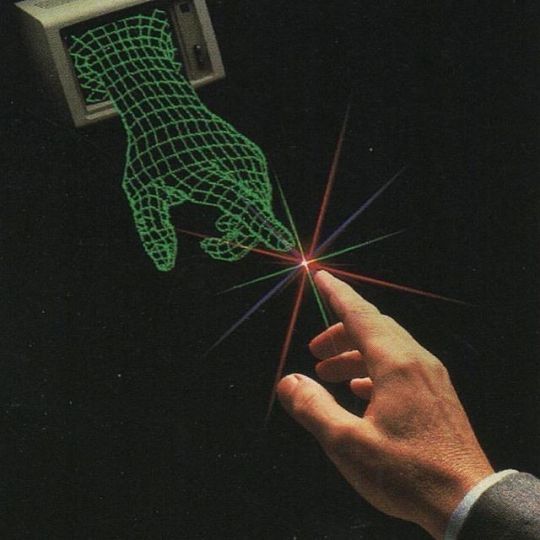
Places most affected:
Argentina – Moon in Aquarius 27°03’
São Paulo – Sun in Aquarius 14°51’
China – Ascendant in Aquarius 5°56’
United States – Moon in Aquarius 26°58’
Brazil – Ascendant in Aquarius 28°10’
Cuba – Ascendant in Aquarius 17°30’
India – Midheaven in Aquarius 14°49’
South Korea – Sun in Leo 21°40’ (opposition to Pluto in Aquarius)
Los Angeles – Midheaven in Leo 1°26’ (opposition to Pluto in Aquarius)
Tokyo – Moon in Leo 6°06’ (opposition to Pluto in Aquarius)
India – Sun in Leo 21°07’ (opposition to Pluto in Aquarius)
Mexico City – Sun in Leo 3°11’ (opposition to Pluto in Aquarius)
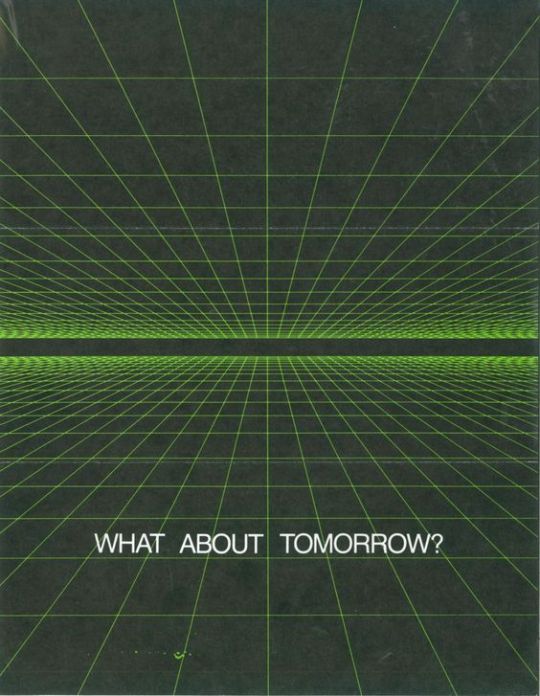


To conclude, I want to make it very clear that I feel a significant event of large proportions will occur when Pluto in Aquarius, at its final degrees, opposes Uranus in Leo, starting around 2038 or 2039. This movement will greatly impact society.
“Ideas are bulletproof!”
— V for Vendetta
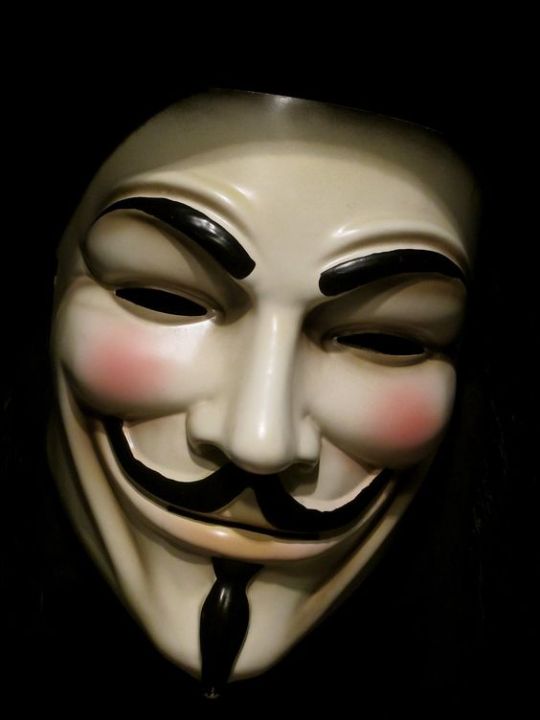

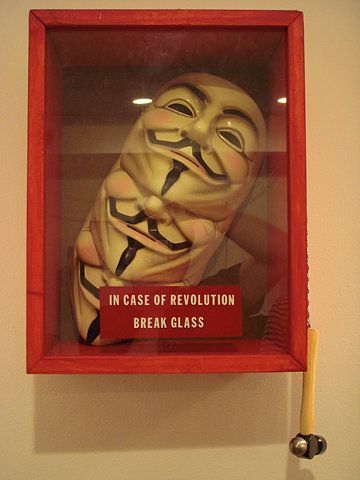
#astro community#astro notes#astrology notes#astro observations#astrology#astrology observations#aries#astroblr#leo#taurus#astrology signs#12th house#astrology readings#astro placements#witchcraft#witchblr#witches#witchcore#witchy vibes#pluto#saturn#the plutonians#asteroids#jupiter#mars#uranus#lenormand#tarot reading#tarot cards#tarotblr
327 notes
·
View notes
Text
Tempered in the Fire - Part Four
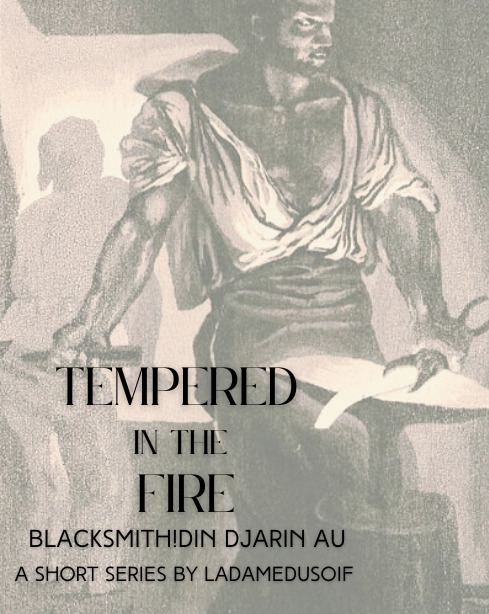
See the Series Masterlist for complete content warnings, historical event information, and series notes.
Cross-posted to AO3. Follow my writing blog @ladameecrit and turn on notifications for updates.
Pairing: Blacksmith!Din Djarin x F! Reader
Summary: Ireland, almost a decade after the rebellion of 1798. You are an unusual woman: married, but alone; a widow, with no certainty her husband is dead. When your local blacksmith is badly injured in an accident and unable to work, you have no choice but to travel to the next forge, run by a man of few words whose uncertain origins and dark complexion make him stand out among the locals. You are immediately intrigued by this mysterious, taciturn figure - and the striking little boy he’s taken as his apprentice.
Word Count: 7.1k
Rating: Explicit; 18+ MDNI (chapter; series)

Content (chapter specific): Blacksmith!Din AU; historical setting; angst; smut; violence; unprotected PiV sex; oral sex (F and M receiving); racist (anti-Traveller) language; period-typical misogyny; references to domestic physical, emotional, and sexual abuse; references to family loss and death; abusive and derogatory language; strong language.
Translations for the Irish language provided throughout as needed, though I have not translated mo chuisle as a term of endearment (it literally means 'my pulse', more usually used as 'my love').
A/N: I am so, so sorry for the gap between chapters here and am grateful to the readers who've been so patient! Thanks, too, as ever, to @paulmescal-s for working through the gnarlier bits of this story with me and being such a great sort-of beta.

In the future, after many years had passed, you would find it hard to remember exactly how much time you had together, at the forge, before the hard reality came knocking at your door. Those days and nights of domestic happiness could never have been enough.
By day, you keep house, sew, and bake. Each morning, you do some basic reading and writing with Gró, or take the little boy around the hedgerows and trees at the boundary of the property, teaching him the names of plants and animals. Din had explained your presence to him, and he beamed every morning when his father carried him down the attic ladder and he saw you again.
Din, so used to being the lone adult in the household, insists on contributing to the routine: cooking, cleaning, setting the fire. It feels so natural, so right - and yet a blade dangles over this strange little found family, ready to drop at any moment.
Each evening, Din readies Gró for bed, sometimes bathing his son in a tin bath in front of the fire while you tell him a story by way of distraction. It has quickly become a highlight of the blacksmith’s day, these moments where he watches as you make his beloved boy squeal with laughter, or hold his rapt attention with the twists and turns of a tale.
They were content and settled, this clan of two. But Din couldn’t help the daydreams about a clan of three that sometimes flashed through his mind.

He took every opportunity he could to touch you throughout the day. A squeeze of your hand at the breakfast table as Gró drained his cup of milk. A discreet kiss to your cheek as he made his way into the forge for his morning’s work. A gentle caress of your waist as he passes you while you’re laying the table for the main meal, taken in the middle of the day.
With Gró settled and asleep in the loft, the two of you moved more hastily in the evenings, now, to sort the things for breakfast and smother the fire. The sooner the chores were done, after all, the sooner you could shed your clothes and climb into his bed together.
The nervous caution of your first time together soon dissipated as you grew more familiar with each other, more in tune with each other’s needs and desires. For all his inexperience and your difficult past, the two of you are perfectly-matched lovers. The feeling of Din’s broad body on yours, glistening with sweat, begins to exorcise the demons of the past. You ride him on top, one hand intertwined with his as he squeezes your breasts and watches you come. He slips his cock inside you one morning as you’re lying together, your back pressed to his chest, and fucks you slowly and carefully until you’re both coming quietly, mouths pushed into the pillows. One evening, he was even too impatient for bed, hitching up your skirts and taking you over the heavy wooden table, hand pressed against your mouth as you whined against his palm.
“I want to learn you,” Din whispered one night, easing your long shift off so that you were completely bare, lying alongside his own naked body.
You traced your fingertips along the softness of his lips. “Learn me?”
His strong, clever fingers roamed over you as he nodded. “Learn you. Know you, all of you.” He squeezed your tits softly, sucking gently on each nipple. “Commit you to memory. How you feel, how you fit together. Do you like this?”
You wound your fingers through his messy curls and nodded. He followed the curves of your body with his broad, calloused hands, moving over your waist and holding your hips firmly as he reverently kissed your belly. He took his time, hands memorising the exact shape and volume of your form.
“You are a beauty, mo chuisle,” he murmured, dark eyes looking up at you from between your legs. “So lovely and soft and warm.”
His fingers pressed into the meat of your thighs as he mapped you out, and you felt the wetness between your legs as your hips bucked upwards, legs parting instinctively.
“Can I…see, mo chuisle?” Din’s palm grazed over the hair covering your mound. “See you…see you here?”
“Of course, my darling.” You opened your legs wider for him, watching as his eyes grew round in awe, before darkening with lust. He reached for his cock, whimpering a little as he stroked himself.
“That’s beautiful.” He had shifted his head closer to your centre, his expression a little bashful. “I’d like to kiss you here. Would that be alright?”
“Please, darling,” you hissed. “Put your mouth on me.”
“I’ve never…” He exhaled nervously as he settled between your legs, fingers already playing with your wet folds. “Never even thought of this, but…”
You ran your fingers through his hair and smiled, understanding what he was trying to say. “You’ll know just what to do, love.”
This was new to you, too, though you had heard of men doing it to their girls, especially if they were not meant to lie together. Your friend Mary had, just prior to her marriage, confided in you that she and her betrothed had found a way to sate their passions without the risk of her falling pregnant before the wedding.
“The mouth is a great thing, all the same,” she’d said, dangling her bare feet in the cool water of the local river on a warm summer day as the two of you lazed on the grassy bank, skirts hitched to your knees. She had explained the mechanisms of it to you, chuckling at your sceptical expression.
“Just wait, girleen. Just you wait and see.”
Now Din’s soft, plush lips were pressed against your slit, tongue tasting your wetness, and you finally understood what she meant. It was heaven: the way his lips brushed against the little bundle of nerves and made your whole body convulse with pleasure, the sensation of his patchy beard against your thighs, how he began to slip his tongue in and out of you. His grunts and moans vibrated against your core and you came hard against him, giggling when you saw the slick glistening all over his smiling face.
In the nights to come, you returned the favour, languidly sucking and licking at his perfect cock while he held your head in place with his broad hands, hips bucking up against you as he groaned with sheer pleasure.
You paused, reminding him that he needed to be quieter, before slipping his cock between your lips again. “‘S not my fault, mo chuisle,” he panted, eyes locked on how his hard length disappeared into your pretty mouth. “Feels far too good.”
As he came in your mouth for the first time, you’d looked up at his beautiful face, release and pleasure and affection written on every part of it, and begged whatever deity might listen to let you stay here forever.

Din is more comfortable showing his feelings through actions, physical gestures, than words. Little by little, though, you notice him opening up more, saying more. Not that he’d ever be what you could consider a talker.
One night, nestled together, you ask him to tell you about himself.
"I want to hear your story, Din.” The comforting caress of your hand against his face makes him smile softly.
"I don’t know what there is to tell.”
You cuddle closer to him, enjoying the feel of his solid frame against you. “Well, I don’t know much about your family, for one…”
He shifts a little in bed and for an instant you worry you have overstepped the mark.
“It’s not a very happy story, mo chuisle, but if you want to know…”
A kiss to the expanse of broad, tanned chest exposed at the neck of his nightshirt. “I want to know. If you want to tell me.”
He finds your hand and presses it to his chest, seeking reassurance in your familiar touch, and taking a deep breath before he begins to whisper his story to you.
"I’m a travelling person. I don’t know where I was born - other than that it was probably somewhere towards the west of the country, on a campsite. I have - had - an older sister, a younger brother. Lived off the money from whatever work my father could get - fixing pots and pans, mostly, sometimes farm labour, depending on the season.”
"A hard living.”
He nods, bringing the back of your hand to his lips. “Hard, but loving.” He inhales deeply, again, before continuing.
"We were never really wanted anywhere. Moved on, camps disturbed, even attacked, sometimes. We learned quickly how to hide at the first sign of trouble.”
He closes his eyes, a flash of sorrow crossing his beautiful features in the moonlight coming through the little cottage window. “I suppose that’s what saved me.”
For a few moments, Din is quiet.
“We had camped on land that was part of some big estate, belonging to Lord somebody or other. The usual situation. My father and a couple of our other men went fishing the first day and poaching the first night, to get us some food. I can still see the scales of the big salmon he caught, glinting in the firelight as my mother cleaned it.”
"A feast.”
He nods, a little smile on his lips at the memory, before his features darken again. “But not our feast to take. The lord’s feast, by virtue of the land being given to him by some far-off king.” He shakes his head ruefully.
"I was coming back with some cans of water the next morning when I heard shouting. The glimpses of red moving towards the camp - the yeomanry. The landlord set them on us, and they gave us no quarter. When some of our men and women tried to defend our few possessions, they - well, they turned violent.”
You hold him close, feeling the anguish in his breathing.
"I saw my father fall, killed by a blow to the head with the butt of a yeoman’s musket. My mother caught a glimpse of me, roared at me to run, to hide, and to my eternal shame I did just that. I didn’t go to them. I ran.”
"She wanted you to live, Din. She was saving you.”
He swallows hard, audible in the stillness of the night.
“The local priest found me a couple of days later, still carrying the empty can. I’d hidden in a ditch, ate blackberries to survive. He arranged for the local blacksmith and his wife to take me in, train me as an apprentice.”
He pauses again. You realise this is the most he’s probably ever said to you in one go.
“When the time came, I took to the roads myself, honing the craft before I could set up on my own. I wasn’t long back when the priest called, saying a cousin in the east knew of an empty forge in need of a good smith.”
"And that’s how you came here?”
Din nods. “That’s how I came to be here.”
You venture a sensitive question. “Din… what happened to your mother, your siblings?”
"Poorhouse. No other choice.”
Silence.
"I didn’t know where they’d gone. So much sickness in those godforsaken places…”
Another pause.
”My brother died first. Then my sister, and then my mother.”
Your voice is tiny, barely a whisper. “Did you… see them?”
"By the time we found out what poorhouse they were in… it was too late.”
Tears prick at your eyes, and you do your best not to let them fall. This is his story, his grief, not yours. Instead, you shift up the bed a little, still holding his warm body close, and lean in to caress and kiss him.
There’s a wet, salty tang on his cheek. You kiss away the silent tear.
For a moment, you think of what Din told you about how he came to adopt Gró: his unwillingness to let the boy go to a poorhouse or orphanage, his desire to protect and train the child, just as he himself had once been taken in by the smith and his wife. Just as he, himself, had once been a lost little boy.
You press your lips to the messy curls at the crown of his head.

There are times when you almost forget that you’re not really meant to be here, so natural and right does it feel. And then you are jolted back, reluctantly, to a reality where you are still technically the wife of a violent, cruel man who could claim you at any moment.
That afternoon, you hear the sound of horses approaching and immediately disappear up to the loft, as usual, until you know it’s safe to descend. You listen attentively as the door opens and breathe a sigh of relief when Gró’s delighted little voice greets Peigí, here on one of her regular visits. You hear Din enter the cottage from the forge, chatting companionably to his old friend, and make for the ladder.
You’re a few rungs down when you hear a second, less familiar voice.
“So where is she, Din?”
He stutters, the panic evident in his voice. You wonder if you can make it back to the loft.
Too late.
Father Carthy hears the sound of your skirts and turns, greeting you by name in grave tones.
“You might as well come and join us, my child.”
Peigí’s gaze is apologetic as you climb down the ladder and move to join the little cluster of adults, Din having sent Gró outside to play. You stand beside him, arms wrapped protectively over your body, resisting the urge to reach for his hand.
“I’m sorry, girleen.” Peigí wrings her hands, expression anxious and sorrowful. “Father came to see me today before I left for the forge, I couldn’t turn him out.”
You meet Father Carthy’s eyes with a look of defiance, straightening yourself to your full height, silently demanding an explanation.
“I am not here to force you home. I know your…situation.” The priest exhales deeply, fingers fiddling with the little black buttons on his long robes. “And between us and the wall and the Lord Almighty, if that kind of cruelty and abandonment was grounds for annulment… well.”
The back of Din’s hand brushes almost imperceptibly against yours.
“But you are still a married woman, and…” The cleric sighs apologetically. “My child, you were seen here. Out in the back field, with the boy. And if I’ve heard it, and people are talking, then it’s only a matter of time before -”
You interject in a low, steady voice. “Before Searlas finds out where I am.”
The priest nods sadly. “That’s why I came here. Why I came with Peigí, specifically. We… have a suggestion.” He looks expectantly at Peigí, who offers you an encouraging smile as she nods in agreement.
“My sister, Rosie - she’s in the next county, big farm, spinster, plenty of space and could do with the help. You could stay there for a bit and then come home to your own place - until they change the garrison, surely, or that wastrel Searlas can be warned off…”
You bite your lip, mulling it over.
“I mean, maybe he’s not going to come looking for me.”
Peigí and the priest exchange a concerned glance. The cleric clasps his hands together and looks at you sympathetically.
“The thing is… I have eyes and ears, as it were, in the barracks, and in the public house preferred by the garrison. I didn’t want to tell you, my dear, in case it frightened you - but he has been talking about you.” He purses his lips, almost afraid to tell you the truth. “He has openly talked about finding you, about… claiming you. And if he finds out you’ve been staying here, with a bachelor - think of your reputation, my child.”
You let out an involuntary sob, and Peigí places a comforting hand on your arm. “I think you need to be gone tomorrow, girleen. At the latest. I’m sorry, I know it’s awful quick, but…”
For the first time, Din speaks. His voice is low, controlled, serious.
“But you - I mean, she must be kept safe.” He looks at you, dark eyes full of care and concern. “If you want to stay, I will keep you safe. I promise.”
There’s nothing more you want in the world than to throw your arms around him and let him protect you, just as you long to protect him from the sorrows of his past. But his description of the day he lost his parents echoes in your mind, as does the tension that crackled in the air the day the soldiers were at the forge. You cannot - will not - bring that down on him again, nor on Gró.
“Din, if I stay here I fear that none of us will be safe. Not you, not me, not Gró. I couldn’t take that risk, my d-” You catch yourself just in time. “I mean, my dear friend.”
Peigí’s wise, inquisitive eyes dart between you and Din, and she emits a low, intrigued hum.
Din exhales in frustration. “I said I would keep you safe, here. I mean it.”
Father Carthy places a paternal hand on Din’s shoulder, expression gentle but resigned. “She’s right, Din, and you know it. Apart from her own reputation - you don’t want a troop of redcoats landing on the doorstep, do you? Think of your home, your livelihood - your son.”
The blacksmith’s expression is defiant, but you can see the reality of the situation dawning on him as the light fades from his beautiful eyes. He nods, silent, a hand twisting at the soft, worn leather of his apron.
“Early as we can after dawn tomorrow, then?” Peigí squeezes your hand as she waits for your answer.
You cannot bring yourself to look at Din as you nod in agreement.

It is still bright outside, just about, when Gró is settled for bed and the dinner things cleared and tidied away. You have packed up your saddlebags in silence, fighting the tears that threaten to fall at any moment.
Din’s broad hand reaches around your waist as he moves past you, pulling you close to him. He nuzzles into the crook of your neck, kissing the delicate skin.
“Can we take a little walk, mo chuisle? Before night falls?”
You face him, tracing the line of his jaw with your fingers. “A little one. Don’t forget there’s a little boy asleep in the loft, we can’t go too far.”
He presses his lips to your fingertips before kissing you on the forehead.

You walk hand in hand in the dusk, wandering through the field at the back of the forge towards the old oak tree that stands at the boundary of the property. Din is quiet - even quieter than usual, just casting occasional glances in your direction and squeezing your hand with a gentle smile.
In the shadow of the oak, he kisses you deeply, pressing your body against the tree as he holds your face in his big, strong hands.
“I don’t want to go, Din.”
“I don’t want you to go, mo chuisle.” He kisses you again, chastely, and looks in your eyes. A question hovers on the tip of his tongue.
“Tell me, my darling.”
He holds your hands, grounding himself a little in your comforting touch.
“I want you to take Gró to Peigí’s sister’s. Please.”
Even in the half-light, he can read the shock on your face.
“Oh, Din, I… I couldn’t. I couldn’t see the two of you parted, he’d be lost without you and you without him and-”
He shakes his head firmly. “I have to keep you safe - both of you. And if a gang of redcoats turned up and it was just me and him…”
He saw his father die.
“He’s your son.”
Din nods. “He is. And I can’t leave him alone again.”
He lost his entire family.
“He might not want to leave with me.”
“I’ve explained it to him. He knows it’s not forever, he understands the reasons why.” You catch a glimpse of his smile, a beacon of hope in the twilight.
“Mo chuisle, you’re the closest thing he has to a mother in this world.”

You hold each other close through the night, afraid to sleep lest you miss a single second of this time together.
Din tucks his face into the side of your neck, inhaling your scent deeply and softly kissing the exposed skin of your shoulders. You wind your fingers through his hair, trying to memorise the rhythm of his heartbeat and his breath.
"You should sleep, mo chuisle,” he whispers against your body. “Tomorrow will be a hard one.”
"Says you,” you whisper in return, enough to elicit a muffled chuckle from the blacksmith.
He pulls away to look you in the eye, fingers mapping the shape of your features. Even in the low light, you can see how his beautiful eyes glisten: this strong and stoic man, fighting the tears that threaten to fall.
You take his hand and guide it down your body, pausing to hitch up your shift and open your legs. You inhale sharply as his fingers find your pussy, well-practiced now from nights and early mornings spent pleasuring you.
With a shift of your hips you roll onto your back, bringing Din on top of you. You pause to take in the sight, suppressing the gnawing feeling that this might well be the last time. The glint in his dark eyes. The moonlight illuminating his features. The feeling of his strong, broad body above you, perfectly positioned between your thighs.
“Make love to me, Din.”
He does so slowly, carefully, anchoring himself with one hand on your hip and the other still caressing the side of your face. You kiss as he fucks you, your whines absorbed by his soft mouth. No man had ever made you come before Din, you muse, as your cunt pulses around him and you near the edge. No man had ever made you feel like this - not just physically, but emotionally, too. Sex was presented to you before your marriage as a duty, not a pleasure. With Din, though, lovemaking felt like the most beautiful, natural expression of the spiritual connection that existed between the two of you.
You come almost simultaneously, Din groaning into your shoulder as he fills you with his seed, you biting your lip to stop yourself from crying out. Still inside you, he kisses you, over and over, your hands trailing through his wavy brown locks and fingers grazing against the rough, patchy stubble of his jaw.
For a moment, you think he’s about to say something. But all he does is kiss you.

It’s still dark outside when you wake, but there’s a comforting glow inside the cottage. You sit up in bed, turning to see Din stoking a small fire in the hearth. He has lit the lamp on the mantle, its flickering yellow flame casting light and shadow through the glass.
You dress quickly, shivering as your body adjusts to the colder air after the warmth of your shared bed, and cross the room to the little cupboard that holds the few pieces of crockery Din owns. By the time he has climbed the attic ladder to rouse the boy, you’ve set the table for a simple breakfast of bread, butter, and the last of the jam you’d brought with you.
Gró’s fair hair peeks over his father’s broad shoulder as Din carries him down the ladder. The little boy is still half-asleep, eyes still closed and nestled into the blacksmith’s frame. Din carefully slides him into his usual seat at the table, ruffling his son’s hair as Gró rubs his eyes and yawns.
“I think some bread and jam will help wake you up, hmmm?” You take a couple of slices of bread from the dish and place them on the boy’s little plate, before pushing the jar of jam in his direction. His dark eyes widen as he looks at you, astonished. This is a rare treat, indeed: usually it’s you or Din who spreads the sweet conserve on his bread, as Gró is liable to be heavy-handed. But this is not a day for rules or restrictions.
“You can have as much as you like, little one.”
The tears threaten at the sight of Gró enthusiastically scraping the jam out of the earthenware pot, a huge smile on his face as he spoons it liberally onto the soda bread. He takes a huge bite and hums delightedly, before turning to you and beaming. The little boy already has blobs of jam on his cheeks and nose, and the sight makes you chuckle.
Din returns to the main room carrying a small knapsack containing Gró’s things. He places it alongside your saddlebags before he joins the two of you at the table, giving your hand a squeeze that, you suspect, is intended to reassure him as much as it is you. He keeps a smile on his face, keeps his tone cheery and light, even as his eyes glisten with tears.
You are saddling Réaltín in the dawn light when Peigí appears down the lane, wrapped in a rough brown cloak and riding her small grey mount. She dismounts swiftly and nods to you.
“All set?”
“I think so. I left the two on their own for a little bit, just to… well, you know.” You swallow hard and look in the direction of the forge. “It’ll be hard for them.”
Peigí hums in agreement. “Aye, ’twill. But Din’s right. And hopefully that bollocks of a so-called husband will be out of the picture soon enough and you can come home. The prick.”
You can’t help but chuckle at the venom in her tone. “Hopefully. I’m awful grateful to you and your sister, Peigí. I mean, maybe we’re being overly cautious, but…”
She shakes her head, russet curls bouncing. “Not a bit of it. You can never tell with a fucker like that.” The cottage door opens, and Din appears, Gró securely held in his strong arms.
“And there’s the best boy in all of Ireland!” Peigí races over, taking the knapsack and planting a kiss on Gró’s cheek. “We should probably get going, girleen.”
She tactfully retreats to the horses, giving you, Din, and Gró some space to say your goodbyes. You feel the blacksmith’s broad arm snake around your waist, uncaring as to whether Peigí saw the affectionate gesture - or, more likely, all too aware that she knew exactly what was going on.
The little boy brings a hand up to touch his father’s handsome face, big eyes scanning Din’s features as if he’s committing them to memory.
“Ná bíodh eagla ort, grá mo chroí.” [Don’t be afraid, love] The blacksmith smiles, but he’s fighting back the tears as he kisses his son’s golden hair. Instinctively, you rest your head on Din’s shoulder, trying to keep your own emotions in check.
Gró’s dark eyes fill with tears and his father comforts him with cuddles. “You’ll have a lovely time on the farm, won’t you? And you’ll look after her while you’re on your visit.” He looks at you, and you nod, smiling at Gró.
“Of course he will. He’s a big, brave lad.” The little boy grins at the praise before flinging his arms around Din’s neck for a final tight hug.
“Be good, and take this.” Din reaches into his pocket to produce a small, silvery chain, evidently made by his own hands. A metal disc dangles from it, and you realise that Din has engraved it with his son’s name. He places it over the boy’s head, smiling at Gró as he picks up the pendant and coos at the shiny object.
“We should get going, lads.” Peigí’s voice carries in the still of the early morning, and Din passes his son to you. Gró nuzzles against you, still holding on to the little pendant that hangs from his neck.
Din’s long fingers find your hand and press something into your palm. He leans in to kiss your cheek. His voice, warm but wavering with emotion, whispers in your ear.
“Is tú mo ghrá thú, mo chuisle.” [You are my love, my darling.]
You stifle the sob that’s rising in your chest.
“I love you too, Din.”

Peigí’s sister Rosie shares her sister’s hardy, forthright personality and her tightly curled auburn hair, but not a lot else. Where Peigí is small, Rosie is tall; where Peigí is talkative and open, Rosie is quiet and reserved. Still, her welcome is genuine, her home comfortable, and you feel at ease from the moment you cross the threshold after a long day’s journey to some semblance of sanctuary.
You retire quickly once you’ve been fed and watered, Peigí sharing with Rosie while you and Gró make do with a settle bed. The little boy falls asleep almost immediately, and you gently kiss his soft cheek, willing him to know that it comes from his father, too.
With the household abed, you can finally look again at Din’s parting gift to you: a chain and pendant, similar to Gró’s. Where the little boy’s bears his name, however, yours carries a symbol, evidently engraved into the metal by the blacksmith himself. Three interconnected spirals - an ancient symbol, one that you recognise from a dolmen tomb that stands in a field not far from your birthplace, one that people in the locality have long speculated about.
Father Carthy would say it is a symbol of the Holy Trinity: three divine beings in one, a sign of early Christians in Ireland. But the storytellers in the townland say it’s far older than any church, its meaning lost to the mists of time.
You trace the three spirals with your fingertip in the darkness. Three as one. For you, that is meaning enough.

He was alone for a long time, Din reminds himself - alone before you, alone even before Gró. He can be alone again.
That said, though, there’s being alone and not knowing anything different, and being alone now. He still automatically goes to the foot of the attic ladder every morning, ready to wake his little boy. He hides the bowl and cup Gró usually uses, because the sight of them makes his heart ache. He throws himself into his work, distracting himself with glowing-hot metal.
And then there is your absence. He had never lived with a woman, not like this; never shared his bed night after night, never loved like this. For the first few days, he wakes with a start when he reaches for your warm, soft body and realises you’re not there.
He tries not to think about the reality of the situation: the fact that, even if you were to return home tomorrow, you could never be together, at least not while Searlas lived. There are nights when, alone in his bed and desperate for the embrace of your arms, violence tempts Din. In his younger years, he might already have taken matters into his own hands.
As the days and weeks tick by with no sign of your so-called husband, and no word from Father Carthy, the blacksmith reminds himself to be patient - and not to fall into complacency. He had never really lost that sense of looking over his shoulder: from childhood, from the rebellion, and now he felt glad of it. No one from the community mentions you to him, though he knows they must have heard by now that you had been hiding from Searlas at the forge. He does his repairs as usual, driving into the village with his pony and trap to return items and collect others, pulling his kerchief over his face as he makes his way through the main street lest he spy a troop of redcoats.
One of the regular customers asks about Gró when he’s returning her extra-large soup pan, newly mended. Din hesitates, but keeps his expression steady.
“He’s spending time with some…cousins,” he explains. “On a farm. It’ll be good for him, he’ll learn from the experience.”
The woman doesn’t ask further, pays up, and retreats back into her little house as Din turns his horse and cart for home. As he gathers speed, he hears a voice calling his name. Father Carthy, clad in his long black cassock and wearing a broad-brimmed hat, is waving to him from the end of the laneway that leads to the chapel.
“Could you spare me a few moments, Din? Follow me up to the parish house.”
The priest’s house is a decently-sized cottage, larger but not too dissimilar to the majority of the dwellings in the village. Father Carthy might be responsible for the majority of the believers in the community, but his is not the “established” church, the official church of the state and gentry, and as such his home is a far cry from the grand, double-fronted manse occupied by the vicar who tends to the local worthies. Even the location of the chapel, tucked off a narrow laneway behind the main street, is a testament to the lower status of this particular branch of religion.
Din enters, taking off his hat and kerchief, and follows the cleric’s gesture to take a seat near the hearth. Father Carthy does the same, pulling his chair closer to Din.
“I have news. I haven’t been able to find a way to dissuade Searlas from seeking her out, but a little bird tells me that they’re going to change the troops again in a week or so. The current crop has been…rowdy.” The priest purses his lips, mulling over the stories he has heard of public drunkenness, fighting, and even soldiers nonchalantly carousing with women in the pubs and on the street. He decides not to give Din too many of the gory details.
“So they’re going to be sent elsewhere, split up. Clonmel, I heard, for some, and Castlebar for others. Maybe a few to Cork. There’s ructions, as you can imagine - a rare thing to break up a regiment - but…”
Din meets the priest’s meaningful gaze. “But…he would be gone.”
Father Carthy nods. “It’s not a solution, not forever, but it at least would let her come home to her own place again, and Gró home to you. You were right to send the boy with her, too - who knows what might have happened had he come knocking?”
Din closes his eyes and furrows his brow at the priest’s turn of phrase: “her own place”. It was a reminder of the truth, that you were not - and could not be - his.
Father Carthy gets to his feet, a signal to Din that it was time to go. “In the meantime, I’m going to look more closely into the canon law around annulment. I’m not hopeful, but maybe she might be able to build a case for it. He did abandon her, after all. Anyway -” he opens the door, and Din exits “- it would free her, at least, from the threat of him.”
The blacksmith thanks Father Carthy as he saddles up to head back to the forge, his heart lighter than it had been in weeks. On the road home, Din smiles to himself as he thinks about seeing Gró again, holding his little boy in his arms, watching you give him an extra spoonful of jam at breakfast, tucking him in to sleep at night. He thinks about your eyes, your smile; the feeling and taste of your mouth; the scent of your skin.
No matter what, he promises himself, no matter the rules or the law or whatever a piece of paper might say: he’ll kiss you again, hold you, take you to bed, and show you how much he missed you.

A couple of days later, as dusk settles, Din lights the lamp and finishes clearing away his lone dinner bowl and mug. Anticipation courses through him as he thinks about seeing two - no, three - places set for the evening meal again. Soon. Soon, they’ll be home.
He yawns and stretches, a hand reaching up to scratch his wavy, dark locks. It had been a hard day in the forge: a run of horses that needed to be shod, urgent repairs, and the difficulty of managing the work itself as well as the bellows and the fire, all by himself. An early night, he decides, might be in order.
He’s in his shirt and breeches when he hears the sound. A horse, its footfall cautious and uncertain, as though it had not been down the laneway before. A rider, barking commands and swearing at the animal. Din pulls his kerchief from his pocket and fastens it around his face before climbing swiftly up the attic ladder. His hand reaches into the thatch, on the other side of the house from Gró’s little bed, and retrieves a pike, smaller in design than the ones he’d hammered by the dozen in 1798 but no less lethal in the right hands. He grips the pike in his right hand, hidden from view while he opens the door with his left.
The rider struggles off his horse, evidently drunk. His scarlet tunic is unmistakable. The light from the cottage illuminates his features: pale, washed-out complexion; unhappy mouth set in a miserable line; hard blue eyes that offered nothing but coldness.
“Where the fuck is she, then, the stupid fucking bitch?”
Din’s fist tightens around the pike, but he holds his ground, still peering around the door. “Who is it? Who are you?”
Searlas swaggers drunkenly towards the house. “I know you’re a tinker, but you don’t have to play thick with me. You know who I am.” He beats his chest, peacocking as he nears Din’s threshold. “I’m a soldier of the fucking crown, so I am. And I’m here for what’s mine.”
He pokes Din’s broad chest, seeming a little startled at how solid the blacksmith actually is. Searlas’s watery eyes meet Din’s stern gaze.
“So… where the fuck is she?”
“Whoever you’re after,” Din says, maintaining the same tone he’s used throughout the encounter so far, “they’re not here. I live alone.”
Searlas pushes Din in frustration, and Din recoils a little at the stench of cheap poitín from the other, smaller man. “I know she’s fucking here. The whole fucking place knows.” He steps back and starts to roar upwards, as if addressing you in an attic hiding place.
“Did you not think I’d find you? You’re that fucking stupid, you would think that. I’m here now, time to go home. You’re mine, remember?” He shakes his fist, swaying a little.
“She’s not here. And even if she was, why do you care so much now? You left her on her own for years, apart from all the other things you did to her.”
Searlas stares at Din, a look of disgust on his face. “So you do know her? She’s full of shit, so she is. Full of lies. Not to be trusted.”
He wheels around again, almost losing his balance completely this time. “You were seen, you lying cunt!”
Din’s fingers clench and release over and over around the pike. He swallows the urge to run this miserable fucker through.
The soldier looks at him through glassy, drunken eyes. “She’s mine, see. And I think I want to take what’s mine. Time she was taught a lesson.” He roars the last word, as if hoping you’ll hear him and emerge.
The blacksmith edges out slightly and stands firmer, broader, in his front door. Searlas stares at him accusingly.
“D’you fuck her?”
Din holds his body and face completely still, focusing on the grip of the pike and his breathing.
“I said, did you fuck her? Did you fuck my wife?”
Din takes a deep breath. “Do you have the right to call her your wife, after what you did?”
Searlas’s jaw drops in astonishment. Din knew that he was just a bog-standard Irish Catholic soldier signed up for cannon fodder like all the others, but it was clear that the other man believed his uniform made him one of the “betters”, no matter what.
“What did you say to me?”
“I said, do you have the right to call her your wife?”
Searlas almost growls with drunken fury. “I have the right to call her whatever I fucking like.” Din notices his fist tightening by his side and steels himself as the other man approaches, menacingly.
“I’ll call her what I fucking like,” Searlas repeats, “including calling her what she is. A slut. A liar. A frigid, barren, useless excuse for a woman. And now? She’s filthy, tinker’s whore. That’s all she is. A stupid, ugly, disgusting tinker’s whore.”
The speed with which Din moves takes the soldier by surprise, as does the bright flash of the pike’s blade as it reflects the moonlight. The blacksmith uses the long handle first, roaring as he beats Searlas away with some well-placed blows. He moves with agility and confidence as the soldier fumbles in his sleeves for a weapon, and produces a narrow switchblade dagger.
“I’ll fucking show you, tinker,” he roars, the poitín giving him an exaggerated confidence. “I’ll skin you alive, fucking another man’s wife.”
He lunges at Din, but a swift, measured flick of the pike’s bladed end knocks the dagger to the ground and tears a hole in the scarlet tunic. Now Din presses his advantage, driving Searlas back to his horse.
“Get out of here and leave her alone. Forever. Don’t you ever come near her again.”
A more sober man would have cut and run, and would do so wisely. But Searlas’s selfishness combined with his drunkenness made for a terrible cocktail of aggression and abuse.
“And what will you do, tinker? They should have hanged every last one of you rebel scum in ‘98. Pity that scalp wasn’t ripped from your skull with a pitchcap.” He pats his thighs, as if seeking another blade. “You couldn’t defend yourselves then, why do you think you could stand up to the king’s army now?” He cocks his head and looks at Din, eyes menacing.
“Or are you just that desperate to defend a thick, useless slut like my wife?”
The grunting, the roars, and the sickening sound of a strong, sturdy fist meeting flesh and bone resonate in the stillness of the twilight. And then another sound, louder still: the unmistakable thud of a man’s body hitting the cold ground.
#tempered in the fire fic#pedro pascal characters#pedro pascal character fanfiction#din djarin au#blacksmith!din djarin#blacksmith!din djarin x f!reader#din djarin fanfiction#historical AU#the mandalorian AU#the mandalorian fanfiction#pedrostories#the mandalorian#din djarin#tempered fic
105 notes
·
View notes
Text
Songs about Ireland / In Irish that I would recommend EVERYONE to listen to.
Firstly, we have Sinéad O'Connor's song 'Famine'. Sinéad was an Irish singer-songwriter and a prominent activist. A very interesting figure, who wrote beautifully poignant songs on issues Ireland faced in the 90's in particular, but these songs still remain very relevant today. This song deals with the truth behind the so-called famine in Ireland, and has been deemed controversial since Sinead first performed it.
Of course, next we have Hozier. 'Butchered Tongue' is a wistful song about the decline in the Irish language and Irish culture. It also touches on the pitchcapping of Irish Rebels during the 1798 rebellion against the british. Yes I cried when hearing this song for the first time.
Another Hozier song, that actually surprised me a lot, is 'De Selby (part 1)'. This song is the first time I have heard the Irish language in a song by a globally popular artist. The idea that this song was played, that Irish was played across the world still amazes me. See my translation for this song here. This song is incredibly beautiful.
A band that sings in Irish is Dysania, and I would really recommend their song 'Lasú Croí'. The song slaps, and they are incredible for keeping our language alive through modern music. I'd also recommend 'Bothar Briste'.
Another band that sings as gaeilge is IMLÉ. I'd recommend 'Éad' and 'Go Deo, Go Deo.' Their songs are incredibly moving, 'Go Deo, Go Deo' kinda reminds me of a calmer version of 'Army Dreamers' by Kate Bush.
'The Town I Left Behind' is also a classic song that practically every Irish person knows. I would personally recommend The Dubliner's version. As well as this I would recommend listening to 'Grace', and 'The Foggy Dew'. All these songs deal with Ireland's history in some way - from the troubles to the 1916 rising.
'Isle of Hope, Isle of Tears' is another well-known song that I particularly remember learning in primary school. The Irish-Americans might be interested in this one - it's a song about the mass immigration to America during the Famine.
#Feel free to name more in the notes!#Gaeilge#gaeilgoir#irish#ireland#eireann#Éire#irish music#ceol#Ceol as gaeilge#Gaeilgoir
66 notes
·
View notes
Photo
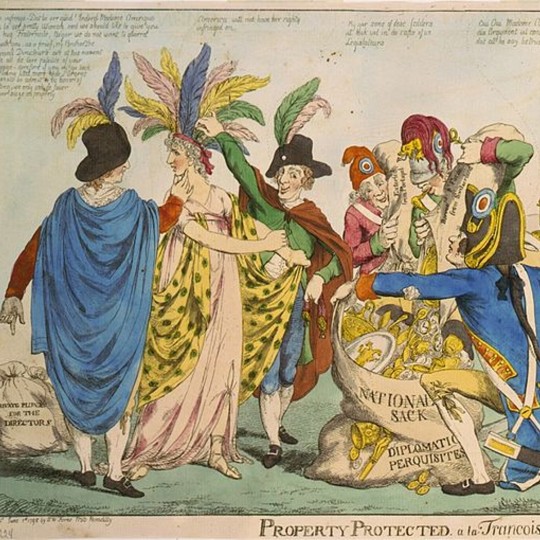
XYZ Affair
The XYZ Affair was a diplomatic incident that occurred in 1797-98, involving diplomats from the United States and Revolutionary France. Amidst rising tensions between the two nations, President John Adams sent envoys to Paris to negotiate a treaty, only to find that the French would not open negotiations unless the US paid a bribe. This helped to incite the Quasi-War.
The affair came at a time when the concurrent French Revolution (1789-1799) was already creating divisions within American politics. The nationalist Federalist Party – of which President Adams was a member – was horrified by the violence of the French Revolution and wanted to move the United States away from France's sphere of influence. To do this, they sought to foster closer political and economic ties with Great Britain, which they viewed as the natural ally of the US. This caused outrage amongst the rival political faction, the Democratic-Republican Party (Jeffersonian Democrats), who believed that closer ties with Britain would only undermine republicanism in the United States. At the same time, the French Republic viewed the budding relationship between the US and Britain as an act of aggression and authorized attacks on American merchant vessels in late 1796.
In 1797, President Adams sought to resolve the issue diplomatically and sent three envoys to France. These envoys had expected to be received by the French foreign minister, Charles Maurice de Talleyrand-Périgord; instead, they were met by three French intermediaries (referred to in coded dispatches as agents 'X', 'Y', and 'Z') who insisted that the United States pay a large bribe in order to meet with Talleyrand and begin negotiations. When this became public knowledge in the US, it inflamed public opinion against the French, leading to increased support for Adams and the anti-French Federalists. Rising Franco-American tensions led to a brief, undeclared naval conflict called the Quasi-War (1798-1800), as well as the passage of the controversial Alien and Sedition Acts (1798).
Background
In 1778, the Kingdom of France signed a Treaty of Alliance with the fledgling United States. The American Revolutionary War had been ongoing for three years, and the Americans had time and again proven their resilience and determination in battle against the British; however, it was clear to all that the American rebellion would falter if they did not receive support from a European power. France was happy to oblige, seeing that a victory in America would humiliate and weaken its rival, Great Britain. France provided the Americans with arms, ammunition, uniforms, troops, and ships, and it turned the war into a global conflict by threatening the valuable British colonies in India and the West Indies, forcing Britain to spread its military resources thin. French soldiers and ships proved vital to the decisive American victory at the Siege of Yorktown, the engagement that solidified American independence. Certainly, the French contributed greatly to the ultimate American victory and succeeded in striking a blow to British prestige in the process.
But such a war came with a monstrous cost, and France soon found itself drowning in debt. Attempts to tackle the problem failed, and France's economic misfortunes blossomed into a revolution. News of the Storming of the Bastille in July 1789 was sweet to American ears, as was the proclamation of the First French Republic three years later. Americans were jubilant that their French brothers-in-arms were following their lead and casting off the shackles of monarchism, with Thomas Jefferson and his supporters even welcoming the new French Republic as "our younger sister" (Wood, 182). But then came the violence: the September Massacres, the trial and execution of Louis XVI, and the start of the Reign of Terror made the streets of Paris slick with blood and plunged the young French Republic deeper into chaos. Under the new Jacobin regime, hundreds of thousands of French citizen-soldiers swept into Europe, vowing to deliver liberty and equality at the point of a bayonet. The French Revolutionary Wars were soon underway as the great powers of Europe – Austria, Prussia, Spain, Portugal, and Great Britain among them – took up arms against the French.
Even now, the French Revolution had support in the United States, with men like Jefferson believing that a little violence was the price to pay for liberty. They believed that the 1778 Treaty of Alliance was still in effect and urged the Washington Administration to offer support to their sister republic. However, President George Washington was reluctant to offer any such support. He knew that doing so would risk antagonizing Great Britain, with whom relations were already low, at a time when the United States was completely unprepared for war. Instead, Washington issued a Proclamation of Neutrality on 22 April 1793, in which he promised to keep the United States out of the French Revolutionary Wars. The following year, his administration negotiated a deal with Britain – the controversial Jay Treaty, ratified by Congress in 1795, created stronger economic and political ties between Britain and the United States. While this achieved the goal of the Washington Administration and the Federalist Party of avoiding another war with England, it outraged the Jeffersonian faction of Americans (Democratic-Republicans), who still wanted to support France and feared that the treaty placed the US too closely within Britain's sphere of influence.
Jay Treaty
John Jay (Public Domain)
The French Republic itself was also incensed by the Jay Treaty, which it interpreted as a British-American alliance. The French felt especially double-crossed because they believed the 1778 Treaty of Alliance was still in effect and had been expecting American support. They retaliated in 1796 when French privateers began attacking American shipping in the British West Indies. Within the next year, nearly 300 American merchant ships were captured, their crews often subjected to maltreatment; in one instance, the French tortured the American captain of the Cincinnatus with thumb screws to get him to confess that he was carrying British goods. Amidst these rising tensions, Washington, who was preparing to leave office, recalled James Monroe as ambassador to France, feeling that Monroe was too pro-French. In his place, Washington sent Charles Cotesworth Pinckney, a hardline Federalist from South Carolina; but when Pinckney arrived in Paris, the French refused to even receive him. This was how matters stood when John Adams was inaugurated as the second US president on 4 March 1797 – a discontented pro-French faction on American soil, and an aggressive French Republic looking to assert its will.
Continue reading...
32 notes
·
View notes
Note
actually i have been meaning to ask you... if you would tell me all your thoughts about Dracula and Landlordism 🙂
well!!! okay! whew yeah alright! let's do thissssss 🧛🏻♂️ i wrote an actual paper about this in grad school but... alas... i can'T FIND IT !! so here are some insane and incoherent thoughts i have cobbled together. it's, uh, long:
so. here's a bunch of stuff:
we know bram stoker was irish (anglo-irish, technically, but he was born and spent his first 30 years in dublin). his mother was from sligo - she herself was a writer/activist, and she published a record of the 1830s cholera outbreak in western ireland (it's argued by some that even this piece of writing + theories of public health partly inspired dracula... more on that later!).
but also! bram stoker was a sickly kid and spent a lot of his early childhood bedridden. during those long days stuck in bed, his mother told him irish folk stories and other tales. he later said that his illness "gave opportunity for many thoughts which were fruitful according to their kind in later years."
some theorists have written that he would have heard stories like this:
from an early irish legend, abhartach was said to be a demonic tyrant who terrorized parts of derry. the locals tried to kill him with the help of a chieftan - but he kept returning night after night with increasing violence (later versions of the myth say that he demanded blood from villagers to sustain him, but this is a more modern addition). a druid said that abhartach had to be killed and buried in a very specific way (upside-down, for one) in order to stay dead. and this worked! the people were free! yay! spooky!
charlotte stoker also lived through the famine (she moved to dublin after marrying in 1844, bram was born in 47), a pretty bleak fucking period in history. while she was in the city, her family remained in the stricken west. there are folk tales from that time that involve menacing undead who would drink the blood of the poor and dying as they slept - this is likely inspired by the actual famine practice of mixing animal blood with oatmeal to supplement starving diets.
then you have ACTUAL family history! bram stoker's great uncle, george blake, took part in the 1798 rebellion of the united irishmen (wolfe tone, etc.) and was executed for his part in leading 1500 irishmen against the crown. another branch of his family, the o'donnells, were involved in the gaelic revival movement. charlotte's cousin richard o'donnell facilitated the donation of gaelic artifacts (the psalter of st. columbcille) to the royal irish academy.
some of these influences hold more weight than others, and so far this has little to do with landlordism BUT i do think it sets a precedent for stoker to be influenced by and concerned with irish matters. stoker was always interested in irish affairs, even if he didn't always come to the conclusions i wanted him to 😂 still, combined with his early career in the irish civil service and as a critic of irish theatre.... despite the fact that the novel was written in london, with obvious influences of the empire, i really do think there are some elements of the novel that are quite irish.
so! landlordism. what's going on in ireland in the latter half of the 19th century? this is a period of major agitation in the lead up to the revolutionary decade in the early 20th century. the main conversation here is about LAND. ireland is hugely rural and agrarian at this time:
in 1841, 4/5 of the irish population lived in villages with fewer than 20 houses
meanwhile, by 1870, 50% of the land on the island was owned by just 700 families - many of whom did not live in ireland
between 1850 and 1870, landlords collected 340 million pounds in rent, and reinvested just 5% back into the irish economy
so in the late 1870s, the irish land league is formed. the land league's goal was land reform - they wanted irish people to have the right to own the land they worked on. they used rent stikes and boycotts - and sometimes intimidation and violence - to achieve reform (1881 land act did restrict rights of landlords). under charles stewart parnell, they also succeeded in extending the right to vote to many agrarian workers. the land league soon became the national league, which pushed for home rule and other economic reforms beyond the land.
what's funny is that the land/national league agitators were themselves depicted as vampires in contemporary criticism - in order to paint the league as a secretive, sinister force that could disrupt imperial stability and suck the life of the irish colony. look at that poor damsel:

that bat even has the face of parnell 😭
so!!! the land!!!! is a constant thread in irish revolutionary activity. the 1916 proclamation declared "the right of the people of ireland to the ownership of ireland and to the unfettered control of irish destinies, to be sovereign and indefeasible." the irish revolution was in many ways a socialist revolution, and the right to LAND was a huge part of their goals. this is also seen in literature of the period, no matter the perspective - there are constant references to soil, earth, environment, and land.
so....... dracula. here is an aristocrat who not only drinks and lives off the lifeblood of people, but also literally removes soil from the land and brings it to england with him so he can live. the ultimate absentee landlord - and a poor one, too. like the ascendency class he may well be based on, dracula continues to drain people of life and resources while his ability to retain his fortune grows weaker (perhaps a nod to reform?). this has been read by some scholars as a depiction of a class that is losing its grip on power, unable to adapt to a changing social and economic landscape. there's also van helsing's constant reference to their plan of campaign/attack, etc. in describing their hunt of dracula... this is curious in that even though it was certainly a commonly used phrase, it's also a direct reference to a specific strategy by the land/national league against landlords in the late 1880s.
then you have the similarities between the eastern question and the irish question.... basically two anxiety-ridden issues from the imperialist point of view on "what to do" with the ottoman empire and the ireland as a colony. as these regions are beset by economic decline... war..... nationalist rebellion.... the question becomes "how do we fix this AND maintain power over people and land?"
we do have to remember that while stoker grew up hearing distinctly irish stories of folklore, rebellion, and famine, he was still a member of the anglo-irish class: he was not writing from an anti-colonial perspective, nor did he hold much anglo-irish guilt for his status. stoker was concerned with irish affairs, but he was never a nationalist. he was instead known to write off both militant fenianism and british landlordism as damaging.
stoker labeled himself as a "philosophical home ruler," meaning he, in theory, supported irish home rule if achieved through peaceful means. he supported irish self-government as internal autonomy - as a monarchist, he believed that ireland should remain in the british empire. stoker was a protestant, even if a liberal one, which also put him at odds with a largely catholic ireland.
so while we can (and i do!!) read the irish political influences here, what stoker himself was more concerned with was the idea of modernity, and he felt like both national and capitalist allegiances held people back from progress.
stoker was hugely interested in medicine as a way to advance progress. there is an anxiety here about infection. back up to charlotte stoker's record of the cholera outbreak in sligo - 10% of the town's population died. it was bram stoker who suggested that his mother write her history of the outbreak - where she noted that the illness came from ships and then infected people as it moved over the land... just like dracula. many cholera victims, nearly dead but still undead, loaded up with morphine and waiting to pass, were burned or buried alive. stoker was said to be morbidly interested in this... the idea of being buried in the earth before being truly dead. the original title of the novel was the undead, before stoker settled on dracula.
i had a whole thing about medicine written out here but i have veered so far away from landlordism that i am going to shut up. i just think that what stoker is messing around with here is a massively changing world, with conflict and advancement alike. landlordism is an obvious influence, but i think it goes hand in hand with an overall sense of: the order as we know it is crumbling.
this pairs well with contemporary anxieties about race, sexuality, and gender.... but that's another post altogether. there are also obvious influences of eastern european history at play here as well, and if i had another post in me i would get into that too!
this is all to say that there is nO WAY stoker didn't have at least some thought of land and empire - mixed with anxiety about the future as modernity and a new century rapidly approaches... a very victorian concern! what makes societal progress - power, knowledge, capital??? everyone at this time seemed to have a different answer!
shut up mel!
#i am...... so sorry#i basically rewrote that paper in here#there are tons of footnotes and disclaimers to be had here#but i don't think i am getting graded on this asdfhj#if you would like sources i will send you the PDFs lmao#mel answers
10 notes
·
View notes
Text

@werewolfetone
Someone please write a review of this game, which appears to be a cutesy farming simulator. Please find some cheap-shot inspiration below:
0/5 can't use my pike to charge at the yeos
1/5 enjoyed the farming but my crop got trampled by the British cavalry.
1/5 that Cornwallis character is sooo annoying!!
0/5 (Northern) Stars the only pumpkins I can grow are orange
#and this people is why you google the name of your potential product before launching it#history humour#18th century#croppies#irish history#rebellion of 1798#1798
14 notes
·
View notes
Text
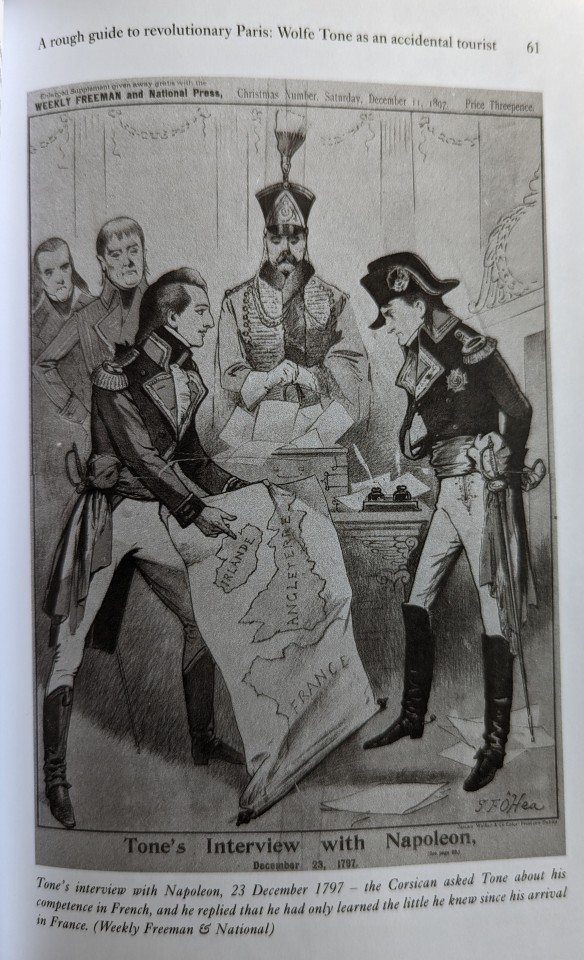
Look at this drawing of Wolfe Tone and Napoleon from 1807
211 notes
·
View notes
Text
#OTD in Irish History | 28 May:
1590 – Hugh O’Neill, Earl of Tyrone, agrees to abandon further attempts at extending his territory in the north, and undertakes to force his people to adopt English laws and customs. 1713 – William Molyneux, the fourteen-year old son of Sir Thomas Molyneux, a former MP, is killed when a leaden image falls on him in a garden near Dublin. 1779 – Birth of poet and songwriter, Thomas Moore, in…
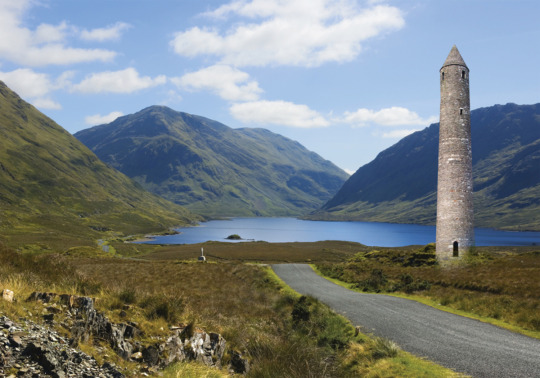
View On WordPress
#irelandinspires#irishhistory ireland#OTD#1798 United Irishmen Rebellion#28 May#History#History of Ireland#Ireland#Irish Civil War#Irish History#Irish War of Independence#Maeve Binchy#Today in Irish History
11 notes
·
View notes
Text
Hozier's 'Butchered Tongue', a homage to the resilience of Irish culture and language in the face of historical oppression
/!\ This post contains a sensitive topic - brief mention, in the fourth paragraph, of the torture carried out by the British on the Irish in the 18th and 19th centuries.
Hello! For this week's post, I wanted to finally introduce you to my favourite artist, the Irish singer-songwriter Hozier. Throughout his career, his Irish heritage has influenced him in terms of style, themes and identity. 'Butchered Tongue' is a song from his latest studio album, Unreal Unearth - inspired by Dante's Epic poem 'Inferno', first part of the Divine Comedy. The tracklist is associated with the Nine Circles of Hell. 'Butchered Tongue' is part of the Seventh, the Circle of Violence.
Through the metaphor of a "butchered tongue" (tongue as the muscle and as the language), Hozier refers to the deliberate suppression of the Irish language, especially during the centuries of British colonial rule when speaking Irish was banned and punishable. The brutal image resonates with the violence inflicted on the Irish people, as the song suggest that erasing a language is akin to erasing a people's history, identity and cultural memory. "A butchered tongue still singing here above the ground" - this line implies that this song will continue to sing for those who cannot, thanks to the people who fought to preserve their culture.

Now, about the lyrics. In the first verse, Hozier cites three place names in foreign languages; "Apalachicola," "Hushpuckena," and "Gweebarra". The first two are places in the US bearing native names, and the third is an Irish place. It demonstrates a strong connection between language and land. Moreover, the presence of other indigenous languages highlights the fact that the song is not just about Irish, but about all indigenous languages threathened or eradicated by colonialism. By saying "And as a young man, blessed to pass so many road signs", Hozier acknowlegdes how fortunate he is to come from a country that is attempting to preserve the native language, as Irish and English are both always written on road signs. "In some town that just means "Home" to them / With no translator left to sound"; when asked what the names of towns like ‘Apalachicola’ mean, their inhabitants have no answer, because the language is being lost as the native speakers disappear. Once again, Hozier acknowledges the privilege of Irish and its preservation.
The lyrics "The ears were chopped from young men if the pitch cap didn't kill them / They are buried without scalp in the shattered bedrock of our home" refers to brutal punishments inflicted on suspected Irish rebels during British colonial rule, especially around the Wexford Rebellion of 1798. "Pitchcapping" was a form of torture which consisted of pouring hot tar over the victim's head, burning and mutilating their scalps and faces. The "shattered bedrock" symbolises a homeland scarred by the suffering and resilience of its people.
Finally, I wanted to include Hozier's words, which I think are important and sums it up: "[Butchered Tongue] is reflecting on the tragedy of cultures who have lost the meaning of their own words. We’re very fortunate in Ireland that we have a solid written history; there's so much there to be learned and build back from. That’s not always the case in indigenous destinations around the world; there are many people that do not have that luxury. No one can say for certain what these places now mean; there will never be a translator."
youtube
Enjoy your holidays, Jude x
13 notes
·
View notes
Text
I just can’t help thinking that Pat and Julian never got to see the end of the troubles in Northern Ireland as they were dead before it happened but Alison and Mike most likely did. Speaking of Ireland, when the captain was 16 the Easter rising happened, Thomas was 2 when the 1798 rebellion happened.
14 notes
·
View notes
Text
A History of Irish Students at Hogwarts (Headcanons)
Irish students began to be educated at Hogwarts in the year 1170, the year after the Anglo-Norman invasion of England had ended. Before this, most Irish witches and wizards were either educated by Druids, their local priests, or by their parents.
As the British influence waxed and waned during the Middle Ages, interactions between the Irish and British Hogwarts students were often fraught with tension, but they mostly kept from resorting to violence. Even after the passing of the 1542 Crown of Ireland Act, which officially made Ireland part of Great Britain, relations between the two groups of students were relatively peaceful.
All of this changed, however, with the passing of the Penal Laws of 1695. These laws actually existed in real life, and under them, Irish people were forbidden to purchase or lease land, vote, bear arms, to speak or write in Gaelic, to play Irish music, and most notably, to exercise Catholicism. As being Catholic was, and to an extent, still is, synonymous with being Irish, this was a staggering blow to the Irish people and culture.
It was at this point that the tension between the Irish and British students finally came to a head. Duels were fought on a near-constant basis at all hours, and many Irish students began acting out in classes as a form of protest against the laws, and against their British educators. Even Peeves was greatly intimidated by the chaos, and to this day, a mere mention of the year 1695 will send him flying away screaming.
The Irish students were not without their supporters, however. Most notably, Hufflepuff House was the greatest supporter of the Irish students during their mini-rebellion, and it is said that a large shamrock plant located in the Hufflepuff Common Room was actually given to Hufflepuff House by their Irish classmates as a tribute to them.
Despite their hard-fought battles and support, the mini-rebellion of 1695 was, sadly, not to be won by the Irish students. The newly-created Ministry of Magic, which was working in conjunction with the Muggle government at the time as the Statute of Secrecy hadn’t been in place for very long, eventually ended the mini-rebellion by threatening the Irish students by claiming that the Ministry would seize any Irish-owned magical lands owned by the student’s families and give them to British Ministry members. Despite the Irish student’s eventual surrender, the lands were taken away anyway as a punishment for starting the rebellion.
The years that followed were horrible for any Irish Hogwarts student, and Slytherin House in particular was known for treating Irish students with disdain. Many members considered marrying an Irish witch or wizard to be on par with marrying a Muggle or Muggle-born. One of the most prominent examples was Corvinus Gaunt, Voldemort’s ancestor, who stated in the Hogwarts school almanac that Irish wizards, “would surely corrupt even the purest of pure-blood families with their Fenian depravity and filth.”
But finally, in the year 1798, the luck of Irish Hogwarts students would soon turn around. Inspired by the short-lived United Irishmen Rebellion in the same year, many Irish Hogwarts students began to rebel again as well…just with a bit of creative flair.
With help from sympathetic members of Ravenclaw House, Irish Hogwarts students began using the famous Room of Requirement to secretly rebel against the British establishment by studying traditional Irish customs and traditions, such as playing uilleann pipes, studying Druidism (which had been dismissed as “Muggle’s magic” by many British wizards,) and most importantly, teaching others to speak and write in the Gaelic language. Older students would often teach younger students these customs, and due to the fact that hardly any Hogwarts professors knew Gaelic, the secret of the “Hogwarts Irish School,” as it came to be known, was kept just that for over 120 years.
In regards to uilleann pipes, one of the most famous Hogwarts stories emerges. In order to keep the sound of the noisy pipes down so that their British professors wouldn’t discover their activities, a fourth year Hufflepuff named Maeve O’Malley (believed to be descended from the famous Muggle pirate Grace O’Malley,) performed the largest Silencing Charm ever done by a Hogwarts student in the history of the school. Some say that her spellwork was so good that the charm still remains today, and is part of the reason why Harry Potter and Dumbledore’s Army were able to use the room without being heard by Dolores Umbridge in 1995—almost two hundred years after it was originally cast.
But the role of the Hogwarts Irish School did not end there. Throughout the Great Hunger and the events that followed, the Irish students doubled down on their work, and it was said that many Irish students in the spring of Black ‘47 even smuggled food out of Hogwarts to take back to Ireland to feed the families in their communities. Even when many Irish students had to leave Europe altogether due to immigration, they still continued to help their former classmates in England by sending letters of encouragement and, when they could, food.
Finally, in the year 1921, Southern Ireland gained independence from Great Britain. One day after the signing of the Anglo-Irish Treaty, on December 7th, 1921, a certain 5th year Gryffindor made history when he became the first Hogwarts student to ever play the uilleann pipes publicly in the Great Hall of the school to celebrate his mother country’s independence from her oppressors. His name? Padraig Finnegan, the great-grandfather…of Seamus Finnegan.
Feel free to add on!
Sorry if this was ridiculously detailed—I just really wanted to play around with this idea! I myself am of Irish heritage, my ancestors coming from Country Cork, and I am very proud of my heritage. I thought of this idea earlier today, and I just couldn’t get it out until I had it down here for you all to see!
#harry potter#hp fandom#history#hp headcanon#gryffindor#hufflepuff#ravenclaw#slytherin#hp#hogwarts school of witchcraft and wizardry#ireland
8 notes
·
View notes